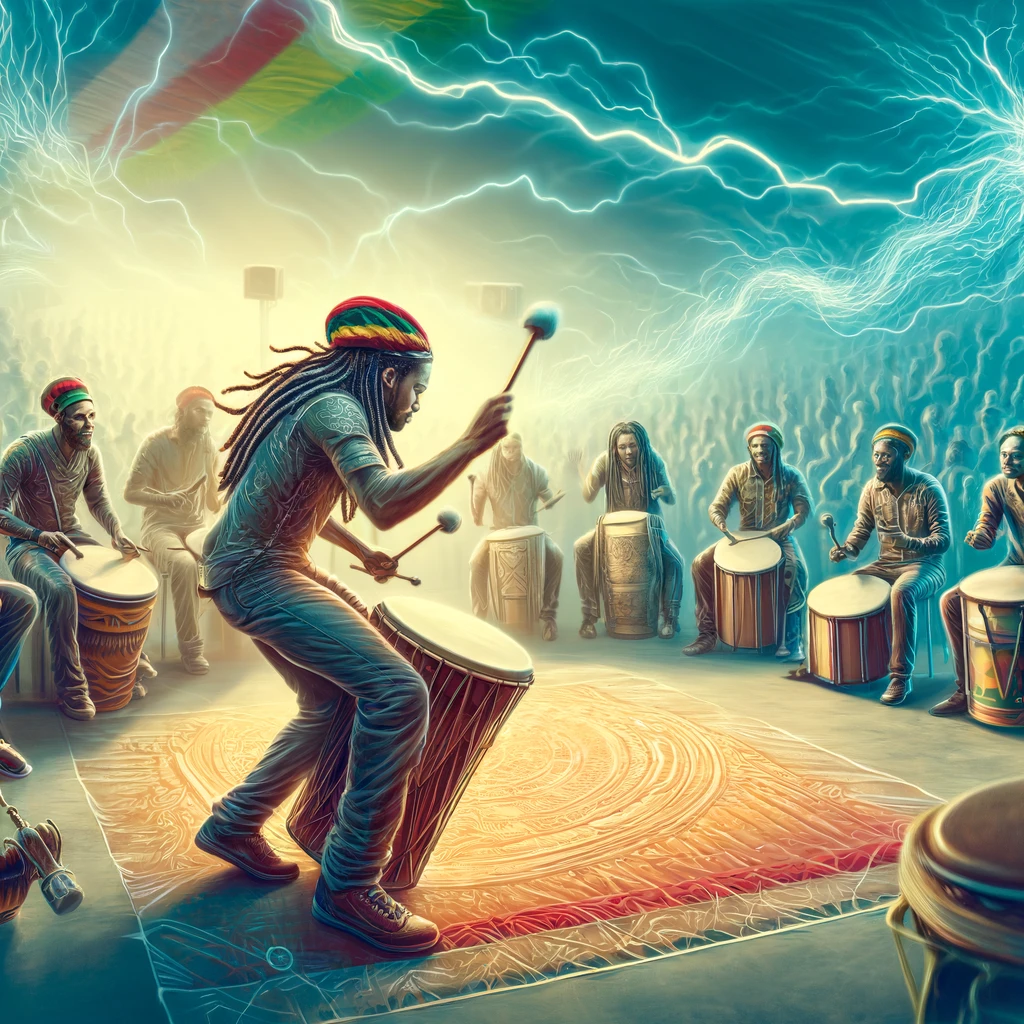Nyabinghi drumming is a powerful and essential aspect of Rastafari culture, serving as both a spiritual practice and a means of resistance. This ancient tradition embodies the rhythmic heartbeat of the Rastafari movement.
1. Origins and Historical Significance
The Nyabinghi drumming tradition has its roots in the Nyabinghi resistance movement in Uganda, which fought against colonial oppression. The term “Nyabinghi” was adopted by Rastafarians to symbolize their own struggle against Babylon (Western oppression) and to honor African resistance. The drumming became a key component of Rastafari ceremonies and gatherings, symbolizing the fight for justice and liberation.
2. Spiritual and Ceremonial Role
Nyabinghi drumming is central to Rastafari worship and reasoning sessions. The drums are believed to communicate with Jah (God) and the ancestors, creating a spiritual atmosphere that facilitates meditation and connection with the divine. The three main types of Nyabinghi drums—bass, funde, and repeater—each play a specific role in creating the powerful, hypnotic rhythms that drive the ceremonies.
3. Community and Unity
Drumming sessions are communal events that bring Rastafarians together. The collective participation in drumming and chanting fosters a strong sense of unity and solidarity among members. These gatherings are opportunities to reinforce community bonds, share spiritual insights, and strengthen the cultural identity of the Rastafari movement.
4. Influence on Reggae Music
Nyabinghi drumming has significantly influenced reggae music, providing the foundational rhythms that characterize the genre. Many reggae artists, including Bob Marley and The Wailers, have incorporated Nyabinghi drumming into their music, spreading the spiritual and cultural messages of Rastafari to a global audience.
Closing Thoughts
Nyabinghi drumming is more than just music; it is the rhythmic heartbeat of Rastafari culture, symbolizing resistance, spirituality, and community. Its powerful rhythms continue to inspire and unite Rastafarians and reggae music lovers around the world.

